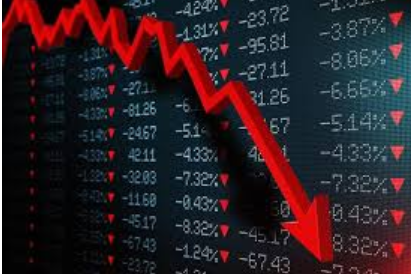Den amerikanske industriproduktion faldt overraskende i december. Det indikerer, at forsyningsvanskelighederne og mangelen på jobs er værre end ventet. Industriproduktionen faldt med 0,3 pct., mens der var forventning om en stigning på 0,3 pct. i forhold til november. Der er også skuffelse i Tyskland over den tyske vækst. Den blev på kun 2,7 pct. for hele året. Der var minusvækst i fjerde kvartal, og det kan ende med recession i begyndelsen af 2022. Også i Tyskland var forsyningsvanskeligheder og mangel på arbejdskraft den afgørende grund til den lave vækst – en af de dårligste i Europa trods en enorm offentlig støttepakke. ING vil dog ikke udelukke, at den tyske økonomi kommer stærkt igen i løbet af 2022.
US manufacturing weakness adds to growth concerns
Following on from the shock December retail sales plunge we see manufacturing output also fell in December. Output contracted 0.3% month-on-month versus expectations of a 0.3% gain that was based on the decent ISM and regional manufacturing numbers.
The weakness was primarily in auto-related output, which fell 1.3%, presumably on lingering supply chain problems holding back output given strong demand for vehicles. However, even excluding this key component, non-auto manufacturing still fell 0.2% MoM.
German economy: Putting a number on a disappointing year
2.7%. This was German GDP growth in 2021. A disappointing performance, as global supply chain frictions paralysed industrial activity. The annual numbers mask a contraction in the economy in the final quarter of 2021, emphasising the high risk for the economy to fall into an outright recession at the turn of the year.
The rebound that almost wasn’t…Despite one of the largest fiscal stimulus packages during the pandemic, the German economy disappointed in 2021. Global supply chain frictions paralysed industrial activity and weighed on economic activity. As a result, and according to the just-released data, the German economy grew by 2.7% in 2021, from -4.6% in 2020.
According to available monthly information and the statement by the statistical agency, the economy shrank in the fourth quarter of 2021. As a result, it could take until the second quarter of 2022 before the economy is back to its pre-crisis level.
Recession now, growth champion later?
It is a strange tradition that the German statistical agency releases full year GDP growth data in mid-January, when no single hard data is available for the month of December. Admittedly, the final month of the year, and also the final quarter of the year, have a relatively smaller impact on full year figures. Later revisions to the fourth quarter will hardly change today’s annual growth number.
With 2.7% in 2021, the German economy is one of the growth laggards in the eurozone. Despite one of the largest fiscal stimulus packages throughout the crisis, the economy did not emerge as one of the first or one of the strongest economies. The main reason for lagging behind, however, is not the inefficiency of fiscal policy but global supply chain frictions.
No other eurozone country suffered as much as the German economy amid a series of supply chain frictions. Industrial production has basically stagnated since spring last year, despite richly filled order books and very low inventories. The upside to a disappointingly weak growth performance in 2021 is that the economy is fundamentally healthy and once pandemic-related restrictions are lifted and global supply chain frictions abate, industrial activity and with it, the entire economy will lift off again.
Zooming in on the most recent developments, the GDP data implies that the economy shrank marginally in the fourth quarter of 2021. Given that there is no single hard data available for December yet, and also given that December was anything but a strong month, we would not be surprised to see a negative surprise once fourth quarter data is officially released a few weeks from now. In any case and as expected, the fourth wave of the pandemic, restrictions in the retail, hospitality and leisure sectors towards the end of the year as well as ongoing supply chain frictions, higher inflation in general, and higher energy and commodity prices in particular, brought the German economy to the brink of stagnation.
All in all, today’s data suggests that the German economy shrank in the final quarter of 2021. As there is hardly likely to be any improvement in the near term, the economy risks contracting once again in the first quarter of 2022, flirting with recession. The only upside is that growth should pick up strongly after this winter spell. Recession and growth champion in 2022? It seems possible.











